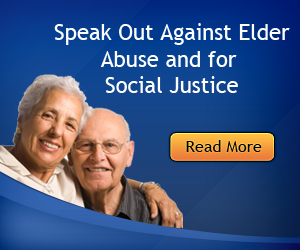Journalist Ginella
Massa made history on November 17, when she became the first woman to
anchor a newscast while wearing a hijab. “That’s a wrap! Tonight wasn’t
just important for me. I don’t think a woman in hijab has ever anchored a
newscast in Canada,” she tweeted immediately after hosting CityNews Toronto’s 11 p.m. broadcast. At a time when the headlines are dominated by stories like U.S. president-elect Donald Trump’s potential registry of Muslim immigrants and increased incidents of violence and Islamophobia,
Massa’s tweet quickly went viral as a statement for inclusion and the
importance of diverse representation in media. Within days, the
journalist was the centre of the story featured by every major
international outlet from NPR to The New York Times to The Guardian. We caught up with Massa, who was born in Panama but moved to Toronto
when she was one, to find out more about her experience, her hopes for
journalism in the Trump era and how to choose a camera-ready hijab. When did you decide to starting wearing the hijab? I started when I was around six, and wore it permanently by the time I
was nine. My mom and sister were wearing it and I didn’t want to feel
left out. My mom actually didn’t want me to wear it because she thought I
was too young, but I insisted. Did it come to have a more personal meaning to you later on? Yeah, absolutely. As I got older, I came to understand it a lot
better. I think a lot of girls who put on the hijab early go through
thinking whether or not they want to take it off because it’s a very
visible marker that says that you are different. My mom was always
trying to get our school to celebrate Eid; she always wanted us to feel
like part of our community and also as though we could practice our
faith and not be ashamed or embarrassed by it. In school, my sister and I
were the only girls wearing the hijab and when we did, we started to
hear from other girls who were Muslim too. Did anything ever happen that made you reconsider wearing it? September 11. I was in high school, and my mom was really scared for
us and she said if we wanted to take off the hijab, it was OK. My sister
and I were both pretty adamant that we weren’t going to do that. I
think that added a bit of resolve to be strong and proud in our faith
and not be ashamed or scared of being who we were. After 9/11 there were
a lot more conversations about faith; people would ask us why we wear
the hijab, and also about Ramadan, fasting and praying. I remember
having many conversations with people about my faith and having to
defend it in many ways—so I had to be secure in why I was Muslim at that
time. What made you want to go into broadcast journalism? In grade six, we did a section in English class on journalism and my
teacher, who had been a journalist in Montreal, talked about being a
reporter in TV news. My mom thought that might be a good career for me. I
said, “Well I don’t know if I can be on TV, maybe I have to do radio.”
Part of that feeling came from not seeing anyone who looked like me on
television. When you don’t see that, you don’t imagine yourself in those
positions. My mom told me, “Just because it hasn’t been done, doesn’t
mean you can’t do it.” You’ve worked in the industry for nearly six years and as a
reporter for the last two. What is it about journalism that you love so
much? When I was younger, I was always interested in public speaking and
enjoyed being in the spotlight. I fell into news and learned to really
love telling people’s stories, beyond the headlines of a car crash or a
court case. There’s always something interesting behind it. It’s
someone’s life. Did you ever face any pushback about the idea of having a reporter wearing a hijab on-air? I never had anyone in a hiring position say anything to my face. It
was something I worried about but obviously we have discrimination laws
in this country so no one can say that as a reason not to hire you. I
did have a colleague tell me in conversation—and I don’t think he knew I
had aspirations to be on-air—but he said, “I don’t think a woman in a
hijab will ever be hired on TV because it’s just too distracting.” But
that pushed me to work really hard. You’ve reported the news wearing a hijab before, but never as an anchor. Walk me through your day on November 17. I’m actually scheduled to anchor over Christmas—that’s the beauty of
diversity in the newsroom, those who don’t celebrate Christmas can fill
in at those times so others can go home to their families. The team said
they would try and get me in [the anchor seat] before then so I could
get comfortable, and that day I was asked to fill in. I was so excited. I
did it, it was great; it felt really fun and comfortable. When I
finished, my assignment editor said, “Hey great job. So was that a first
for Canada?” and I said, “Yeah, I think it was.” and he said, “Cool,
well I guess we’re all a part of history.” What has the response been like since this story went viral? For the most part, it’s been really positive. People who are familiar
with my work congratulated me on this career milestone. People who
watched me said that seeing me on TV made them feel like they belong
here. I had a woman email me and say, “Sometimes in this current climate
I feel really scared walking outside in a hijab, and then I see you on
TV and it makes me feel OK.” Those kinds of messages make me feel like
I’m having an impact and doing the right thing. And as I said, when I
was a kid, I didn’t see anyone who looked like me on TV so hopefully
now, someone else is watching because that can tell you what you can or
can’t do, or where you do or don’t belong. Unsurprisingly, not all the online comments were positive. What do you say to the haters? Sometimes you can’t ignore the negative comments and even though
they’re fewer, they’re louder and they hit you in a different way. I
recognize that most of the people who have something negative to say
have probably never actually seen my work, they’re just reacting to a
headline and a photo and they have a problem with the way that I look.
I’ll happily take criticism for my work if you think I haven’t done my
job well, but if you just have a problem with what I’m wearing, that’s
not really my problem, it’s yours. You tweeted something along those lines recently. Yeah. And it’s a problem that women in general deal with all the
time. There’s always a focus on what we’re wearing, what our makeup is
like, or our hair. I had someone tweet me once about my chipped nail
polish—as if that’s the defining factor of whether my story is good or
not. Having said that, do you choose certain styles of hijabs for TV? Absolutely. That just comes with the territory. The same way I would
choose my outfit, I choose my hijab accordingly. Sometimes it starts
with the hijab and the rest of the outfit goes around it, and sometimes
it’s the other way around. I’m just conscious that the hijab is often
the piece that is most visible because it’s a shot that’s shoulders up,
so it does put the focus on my face. As an on-air reporter, have you ever run into problems with interview subjects based on the fact that you’re Muslim? In some ways I have privilege because my name is not Muslim-sounding
and I don’t have an accent. So often, my first interaction with people
is by email or over the phone and that’s where I’m convincing them to do
an interview. And then they meet me in person and you see that moment
of surprise on their face, but I’m good at breaking the ice and I’ve
been told I make people comfortable. That’s all just part of being a
journalist in general. As part of your job, you have to report on stories like the anti-Muslim sentiments in the U.S. How do you handle that? It’s hard, I’ll be honest, when it’s something that affects you
personally or directly. But at the same time, as a journalist, it’s my
job to remove myself from the story. It’s not about me. I’m just the
vessel. I’m always conscious of being fair and I almost put more
pressure on myself to really step back and make sure I’m asking the
right questions because I feel like there’s going to be more scrutiny. I
don’t ever want to be accused of being too soft on an issue or allowing
my own opinion to negatively impact the way I tell a story. Was there a recent news story where you found that particularly challenging? The mass shooting at the gay nightclub in Orlando. I was having so
many emotions that day. Even within my own community, recognizing the
homophobia that does exist and the struggle that LGBTQ Muslims deal
with. I was trying to put a voice to that but not feeling like I wanted
to throw my community under the bus, but having to be a journalist and
ask the tough questions—that was a really emotional day for me. I went
home and I cried after. Your story has brought a lot of attention to the need for
diversity in media, but who do you feel is still underrepresented in
this industry? People with physical disabilities. Diversity in our newsroom in
general is so important because if we truly want to tell the stories of
our communities, we have to be tapped into them. If everyone in the
newsroom has similar experiences, ideas and views on the world, that is
going to come out in the newscast. Going into 2017, what is your hope for journalism? I’ve spoken with other Muslim women who work in journalism in the
U.S. and wear the hijab and they’ve said that they’ve been told flat-out
that they’re not going to be on TV. And that was pre-Donald Trump.
That’s really sad to me. They’re not being limited because they’re not
capable or smart, they’re being limited because someone else has decided
that how they look doesn’t belong on television. So I’m hoping that by
me being here, I’m showing the world, Look, they put a women in a hijab on TV and the sky didn’t fall. People can handle it, and it’s about time.

Meet the First Woman in Canada to Anchor the News in a Hijab

 |
||||
|
||||
 |
||||



